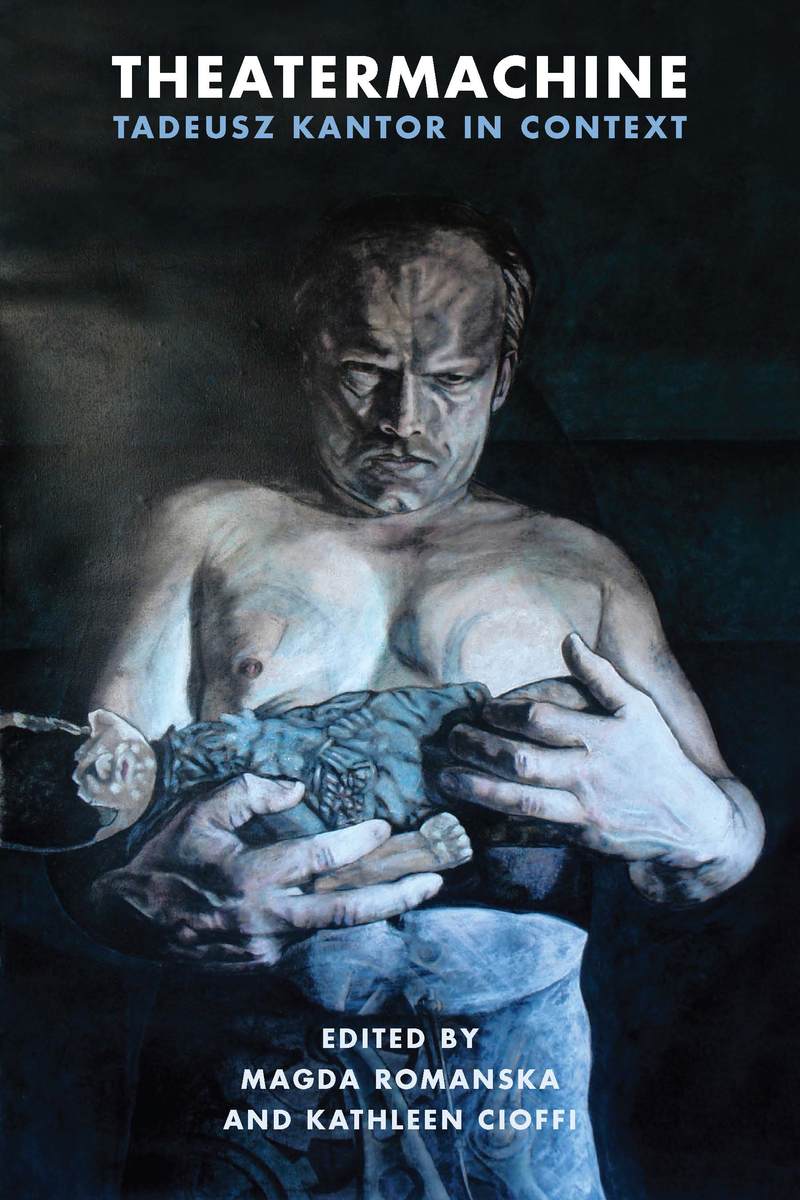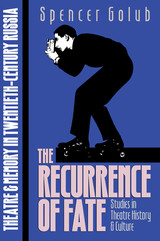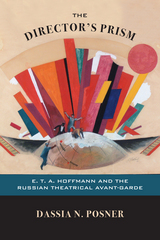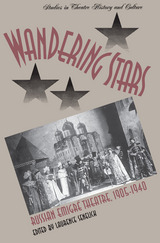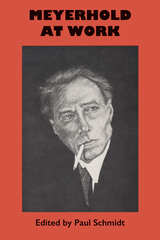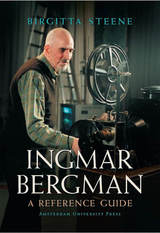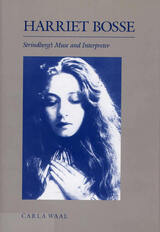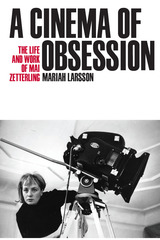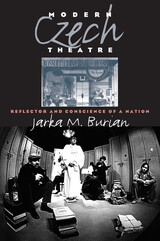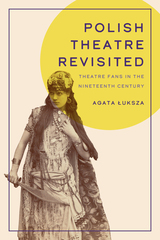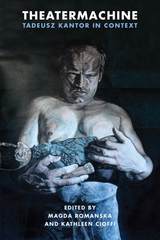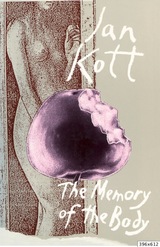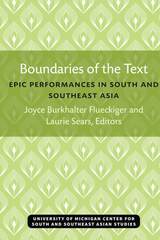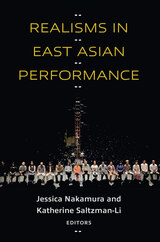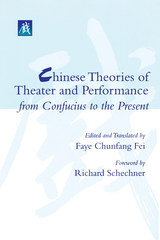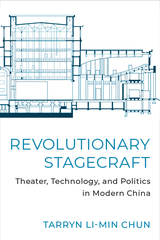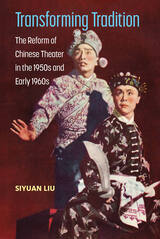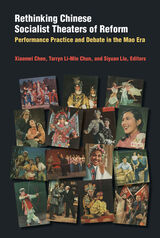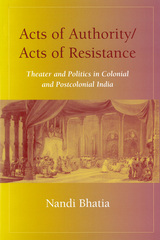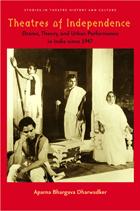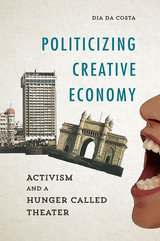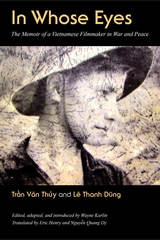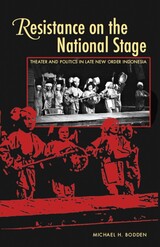Theatermachine: Tadeusz Kantor in Context
edited by Magda Romanska and Kathleen Cioffi
contributions by Agnieszka Legutko, Nina Kiraly, Lucja Iwanczewska, Mateusz Borowski, Kris Salata, Debra Caplan, Katarzyna Fazan, Lawrence Switzky, Izumi Ashizawa, Karolina Prykowska-Michalak, Anna Róza Burzynska, Agnieszka Tworek, Anna Królica, Lauren Dubowski, Herta Schmid, Martin Leach, Michal Kobialka, Jacob Micah Juntunen, Grzegorz Niziolek, Klaudiusz Swiecicki, Hans-Thies Lehmann and Tamara Trojanowska
contributions by Agnieszka Legutko, Nina Kiraly, Lucja Iwanczewska, Mateusz Borowski, Kris Salata, Debra Caplan, Katarzyna Fazan, Lawrence Switzky, Izumi Ashizawa, Karolina Prykowska-Michalak, Anna Róza Burzynska, Agnieszka Tworek, Anna Królica, Lauren Dubowski, Herta Schmid, Martin Leach, Michal Kobialka, Jacob Micah Juntunen, Grzegorz Niziolek, Klaudiusz Swiecicki, Hans-Thies Lehmann and Tamara Trojanowska
Northwestern University Press, 2019
Cloth: 978-0-8101-4025-7 | Paper: 978-0-8101-4024-0 | eISBN: 978-0-8101-4026-4
Library of Congress Classification PN2859.P66K3684 2020
Dewey Decimal Classification 792.0233092
Cloth: 978-0-8101-4025-7 | Paper: 978-0-8101-4024-0 | eISBN: 978-0-8101-4026-4
Library of Congress Classification PN2859.P66K3684 2020
Dewey Decimal Classification 792.0233092
ABOUT THIS BOOK | AUTHOR BIOGRAPHY | REVIEWS | TOC | REQUEST ACCESSIBLE FILE
ABOUT THIS BOOK
Theatermachine: Tadeusz Kantor in Context is an in-depth, multidisciplinary compendium of essays that examine Kantor’s work through the prism of postmemory and trauma theory and in relation to Polish literature, Jewish culture, and Yiddish theater as well as the Japanese, German, French, Polish, and American avant-garde. Hans-Thies Lehmann’s theory of postdramatic theater and contemporary developments in critical theory—particularly Bill Brown’s thing theory, Bruno Latour’s actor network theory, and posthumanism—provide a previously unavailable vocabulary for discussion of Kantor’s theater.
AUTHOR BIOGRAPHY
MAGDA ROMANSKA is an associate professor in the Department of Performing Arts at Emerson College and the author of Post-traumatic Theatre of Grotowski and Kantor.
KATHLEEN CIOFFI is a theater historian who specializes in Polish theater. She is the author of Alternative Theatre in Poland, 1954–1989.
KATHLEEN CIOFFI is a theater historian who specializes in Polish theater. She is the author of Alternative Theatre in Poland, 1954–1989.
REVIEWS
“This groundbreaking collection of beautifully edited essays is impressive in both scope and depth. The book deftly interweaves Kantor’s Polish, Jewish, international, and theoretical roots, thus illuminating essential connections between each in thrilling new ways.” —Dassia Posner, author of The Director’s Prism: E. T. A. Hoffmann and the Russian Theatrical Avant-Garde
— -“A unique collection, full of splendid writing and vivid insight, destined to become an essential resource on one of the twentieth century’s seminal experimental theater artists.” —Jonathan Kalb, Hunter College, the author of Great Lengths: Seven Works of Marathon Theater
— -“An invaluable and much needed collection on the incomparable Kantor—his work, his life, his theatrical prescience. Kantor confronted the twentieth century in profound ways that changed the future of theater. This volume approaches his methods and means through twenty-first century lenses that Kantor’s own work might be said to have forecast—post-dramatic theory, new materialism, thing theory, and posthumanism. As such, Theatermachine expands our understanding not only of the theater artist but of theory and practice that would follow.” —Rebecca Schneider, Brown University, the author of Performing Remains: Art and War in Times of Theatrical Reenactment
". . . these rich and profound essays not only place Kantor retrospectively into the theatrical past, but also argue persuasively for his relevance in the 21st century as an avatar of postdramatic and posthuman performance, and of object theater and performance art." —R. Remshardt, University of Florida, CHOICE
"The most important result of this publication is that through this entanglement of different discourses, cultures, and narrations, Kantor’s art reveals itself not only as practice but also as a strong theoretical proposal. His thinking about how matter, performance, objects, and actors can be realized on stage and in art can now be understood not merely as material for interpretation but as an autonomous theory feeding contemporary discussions and practices and offering different categories and models. This is why his art is still interesting today and why it can be important in the global context." —Dorota Sosnowska, Modern Drama
"The publication shows a different image of Kantor, one which is certainly not well known in the field of English language scholarship. The articles collected by the editors extend the previous path of analyzing Kantor’s work, his use of memory as an artistic strategy, but they also show a modern approach to Kantor’s legacy. Kantor was not a creator of pop culture; he was an artist who made his local art global." —Dominika Łarionow, Theatre and Performance Design
“In their edited collection, Theatermachine, Magda Romanska and Kathleen Cioffi address the lack of recognition and critical attention given to Polish theater maker Tadeusz Kantor and attempt the important work of remedying this dearth of scholarship by repositioning the study of his productions and theoretical writings as productive sites of contemporary theory and aesthetics.” —Jim Short, TDR: The Drama Review
"We cannot talk about one monolithic 'theatre of Tadeusz Kantor.' Rather, we are confronted with myriads of his ideas and the book edited by Magda Romańska and Kathleen Cioffi, like a real “Kantormachine,” is the best representation of this phenomenon." —Krystyna Lipińska Iłłakowicz, The Polish Review
— -". . . these rich and profound essays not only place Kantor retrospectively into the theatrical past, but also argue persuasively for his relevance in the 21st century as an avatar of postdramatic and posthuman performance, and of object theater and performance art." —R. Remshardt, University of Florida, CHOICE
"The most important result of this publication is that through this entanglement of different discourses, cultures, and narrations, Kantor’s art reveals itself not only as practice but also as a strong theoretical proposal. His thinking about how matter, performance, objects, and actors can be realized on stage and in art can now be understood not merely as material for interpretation but as an autonomous theory feeding contemporary discussions and practices and offering different categories and models. This is why his art is still interesting today and why it can be important in the global context." —Dorota Sosnowska, Modern Drama
"The publication shows a different image of Kantor, one which is certainly not well known in the field of English language scholarship. The articles collected by the editors extend the previous path of analyzing Kantor’s work, his use of memory as an artistic strategy, but they also show a modern approach to Kantor’s legacy. Kantor was not a creator of pop culture; he was an artist who made his local art global." —Dominika Łarionow, Theatre and Performance Design
“In their edited collection, Theatermachine, Magda Romanska and Kathleen Cioffi address the lack of recognition and critical attention given to Polish theater maker Tadeusz Kantor and attempt the important work of remedying this dearth of scholarship by repositioning the study of his productions and theoretical writings as productive sites of contemporary theory and aesthetics.” —Jim Short, TDR: The Drama Review
"We cannot talk about one monolithic 'theatre of Tadeusz Kantor.' Rather, we are confronted with myriads of his ideas and the book edited by Magda Romańska and Kathleen Cioffi, like a real “Kantormachine,” is the best representation of this phenomenon." —Krystyna Lipińska Iłłakowicz, The Polish Review
TABLE OF CONTENTS
Magda Romanska, Introduction
Kathleen Cioffi, “Kantor: A Short Biography”
Part I: Kantor in Theory
Martin Leach, “Tadeusz Kantor and Modernism”
Michal Kobialka, “Tadeusz Kantor’s Objects: Materialism of the Encounter”
Jacob Micah Juntunen, “Human/Object/Thing: Kantor’s Puppets and Bio-objects”
Grzegorz Niziołek, “Crushed People: Kantor and Trauma Theory”
Klaudiusz Święcicki, “Kantor and the Theatre of Postmemory”
Hans-Thies Lehmann, “Postdramatic Tragedy: Notes on the Theatre of Tadeusz Kantor,”
Magda Romanska, “Kantor and the Posthuman Stage”
Part II: Kantor, Locally
Tamara Trojanowska, “Transgression and Eschatology in the Work of Tadeusz Kantor”
Agnieszka Legutko, “Possessed by the Traumatic Past: Postmemory and S. An-sky’s Dybbuk in Kantor’s Dead Class”
Nina Kiraly, “Tadeusz Kantor and Bruno Schulz”
Łucja Iwanczewska, “Kantor and Witkacy: Childish Games with Death”
Mateusz Borowski, “Witkacy’s and Gombrowicz’s Influence on the Theatre of Tadeusz Kantor”
Kris Salata, “Kantor’s and Grotowski’s Poor Theatre”
Debra Caplan, “Imagining a Future that Never Was: Tadeusz Kantor’s Symbiotic Jewish-Polish Stage”
Kathleen Cioffi, “Kantor and Słobodzianek: The Dead Class and Our Class”
Katarzyna Fazan, “From Tadeusz Kantor’s Anatomy Lesson to the Autopsy in Polish Contemporary Art”
Part III: Kantor, Globally
Lawrence Switzky, “Kantor and Early Twentieth Century European Avant-Garde Directors”
Herda Schmid, “Tadeusz Kantor and the German Bauhaus: From Technological to Metaphysical Utopia.”
Izumi Ashizawa, “Kantor and Japan”
Karolina Prykowska Michalak, “On the Reception of Tadeusz Kantor’s Work in Germany”
Anna Róża Burzynska, “Kantor and the Contemporary European Avant-Garde: Marthaler, Perceval, and Hermanis”
Agnieszka Tworek, “Kantor and the Contemporary French Avant-Garde”
Anna Królica, “Kantor, Pina Bausch, and Dance Theatre”
Lauren Dubowski, “Kantor and the American Avant-Garde”
Contributors
Kathleen Cioffi, “Kantor: A Short Biography”
Part I: Kantor in Theory
Martin Leach, “Tadeusz Kantor and Modernism”
Michal Kobialka, “Tadeusz Kantor’s Objects: Materialism of the Encounter”
Jacob Micah Juntunen, “Human/Object/Thing: Kantor’s Puppets and Bio-objects”
Grzegorz Niziołek, “Crushed People: Kantor and Trauma Theory”
Klaudiusz Święcicki, “Kantor and the Theatre of Postmemory”
Hans-Thies Lehmann, “Postdramatic Tragedy: Notes on the Theatre of Tadeusz Kantor,”
Magda Romanska, “Kantor and the Posthuman Stage”
Part II: Kantor, Locally
Tamara Trojanowska, “Transgression and Eschatology in the Work of Tadeusz Kantor”
Agnieszka Legutko, “Possessed by the Traumatic Past: Postmemory and S. An-sky’s Dybbuk in Kantor’s Dead Class”
Nina Kiraly, “Tadeusz Kantor and Bruno Schulz”
Łucja Iwanczewska, “Kantor and Witkacy: Childish Games with Death”
Mateusz Borowski, “Witkacy’s and Gombrowicz’s Influence on the Theatre of Tadeusz Kantor”
Kris Salata, “Kantor’s and Grotowski’s Poor Theatre”
Debra Caplan, “Imagining a Future that Never Was: Tadeusz Kantor’s Symbiotic Jewish-Polish Stage”
Kathleen Cioffi, “Kantor and Słobodzianek: The Dead Class and Our Class”
Katarzyna Fazan, “From Tadeusz Kantor’s Anatomy Lesson to the Autopsy in Polish Contemporary Art”
Part III: Kantor, Globally
Lawrence Switzky, “Kantor and Early Twentieth Century European Avant-Garde Directors”
Herda Schmid, “Tadeusz Kantor and the German Bauhaus: From Technological to Metaphysical Utopia.”
Izumi Ashizawa, “Kantor and Japan”
Karolina Prykowska Michalak, “On the Reception of Tadeusz Kantor’s Work in Germany”
Anna Róża Burzynska, “Kantor and the Contemporary European Avant-Garde: Marthaler, Perceval, and Hermanis”
Agnieszka Tworek, “Kantor and the Contemporary French Avant-Garde”
Anna Królica, “Kantor, Pina Bausch, and Dance Theatre”
Lauren Dubowski, “Kantor and the American Avant-Garde”
Contributors
REQUEST ACCESSIBLE FILE
If you are a student who cannot use this book in printed form, BiblioVault may be able to supply you with an electronic file for alternative access.
Please have the accessibility coordinator at your school fill out this form.
It can take 2-3 weeks for requests to be filled.
See other books on: Caplan, Debra | Context | Experimental theater | Kobialka, Michal | Poland
See other titles from Northwestern University Press
Nearby on shelf for Literature (General) / Drama / Dramatic representation. The theater:
9781841502694
9780896802759
